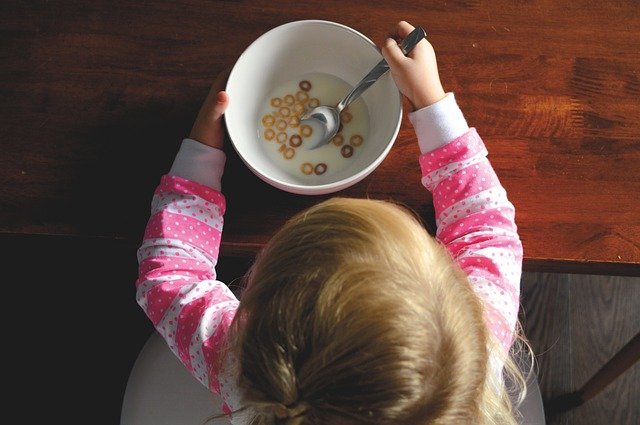Food allergies have increased by about 50 percent in the last two decades and now affects about 1 in every 13 children in the US. If you or your spouse have food allergies, you might be worried about your child suffering from them as well. The good news is that there are several steps that you can take to help reduce your baby’s risk of allergies. Furthermore, a healthy diet will ensure that you get the nutrition you require and that your baby’s development is on track.
Tips to Avoid Baby Food Allergies and Eat Right During Pregnancy
At this time, there is still insufficient evidence for medical experts to make general recommendations on foods to avoid in a pregnancy diet to help prevent food allergies in babies. However, initial research indicates that certain pregnancy diet patterns might help to reduce the risk of baby allergies while others could increase these risks. Here’s how your pregnancy diet can impact your little one’s risk of a food allergy.

- A diverse pregnancy diet is linked to a lower risk of baby allergies
A healthy pregnancy diet should be diverse and contain a range of vegetables, fruits, dairy products, fish, grains and non-fried meats. The Healthy Start study in Denver found that this type of diverse diet is crucial for mothers who have a personal history of allergy. 33% of children born to mothers with a personal history of allergy and poor diet diversity during pregnancy suffered from allergies and/or eczema by age 2. This was significantly higher than the incidence of allergies and/or eczema in children born to women with a personal history of allergy but good diet diversity, which was just 19%. Even women with no history of allergies will benefit from a varied diet as the study found that the baby allergy/eczema incidence was 20% for women with a varied diet but 26% for those with poor diet diversity. The results from this study indicate that introducing diversity to your pregnancy diet can help to reduce your child’s risk of developing food allergies/eczema.
- Avoiding allergenic foods during pregnancy does not affect allergy risk
Earlier, it was believed that pregnant women should avoid foods such as peanuts, shellfish, milk, and eggs that are known to cause allergies. The reasoning was that avoiding these foods would help to prevent allergies in babies. However, subsequent studies did not find evidence to substantiate this claim. Based on current research, the American Academy of Pediatrics has advised that avoiding allergenic foods during pregnancy will not prevent food allergies in children.
- Eating allergenic foods during pregnancy might reduce allergic risk
Recent research indicates that pregnancy diets that include allergenic foods might reduce the risk of food allergies in babies. A study on mice found that pregnant mice who were exposed to allergenic foods produced protective anti-bodies which they passed on to their offspring. These antibodies enabled their babies to tolerate the allergenic foods without any adverse reaction. Similarly, a large-scale study of over 1200 mother-child pairs found that the intake of peanuts, milk and wheat during pregnancy was associated with the reduced incidence of allergy and asthma in children.
- Mediterranean diet patterns are associated with a lower allergy risk
The Mediterranean diet is considered to be one of the healthiest diets in the world. It is based on a daily diet of fruits, vegetables, whole grains and healthy fats along with a weekly intake of fish, poultry, eggs and dairy products. The Mediterranean diet decreases the risk for several health problems including diabetes, cardiovascular disease, several types of cancer and mental disorders. Findings from a study on the effects of the Mediterranean diet pattern during pregnancy suggest that this diet can help to prevent childhood allergies and asthma.
- Red meat, fast food and margarine associated with higher allergy risk
Red meat, fast food and margarine have one thing in common – all of them are high in saturated (unhealthy) fats. Red meats such as beef, lamb and pork have a much higher content of saturated fats compared to chicken or fish. Similarly, junk foods and margarine-laden foods such as pastries, doughnuts and cookies contain large amounts of saturated fats. A review of 4 studies found that a prenatal maternal diet consisting of foods such as red meat, fast food and margarine was associated with a higher risk of allergic disease in children.
Ways to reduce the risk of food allergies in newborns
In addition to the changes you can make in your pregnancy diet, there are also several things you can do to reduce your baby’s risk of food allergies after he is born.

- Include allergenic foods in your diet while breastfeeding
There’s mounting evidence that including allergenic foods in a breastfeeding diet will help to reduce your baby’s risk of allergies. A recent study found that children whose mothers consumed peanuts while breastfeeding and introduced peanuts to their baby’s diet before 12 months had the lowest incidence of peanut allergies at just 1.7%. Babies born to mothers who avoided peanuts but directly introduced peanuts to their baby’s diet before 12 months had a much higher incidence of peanut allergy at 17.6%.
- Introduce your baby to allergenic foods by 6 months
Previously, it was thought that delaying the introduction of allergenic foods until the child was at least 3 years old. However, this recommendation was based on opinion and not scientific research and contributed to the drastic increase in the prevalence of food allergy in recent decades. Recent evidence shows that infants who are introduced to an allergenic food such as egg at 4-6 months have a lower risk of allergy compared to those who are introduced to the same food at 10-12 months or later.
- Make allergenic foods a part of your baby’s regular diet
Simply introducing your baby to allergenic foods is not enough as health experts recommend that they should be given regularly once they are introduced. When introducing any new food to your baby’s diet, start with a very small amount – 1 to 2 teaspoons of a single-ingredient puree. As your child gets used to the new food, you can introduce more foods while following the same method. The first time you introduce your baby to an allergenic food, keep an eye out for hives, lip swelling and wheezing as these are some of the most common symptoms of baby allergies.
It would be wise to calculate your due date and eat lighter meals around this time so that you don’t run the risk of going into labor after a large meal – which could get uncomfortable. According to the American College of Obstetricians and Gynecologists (ACOG), it is okay for pregnant women to drink clear liquids such as clear broths and beverages if the labors is uncomplicated.


























